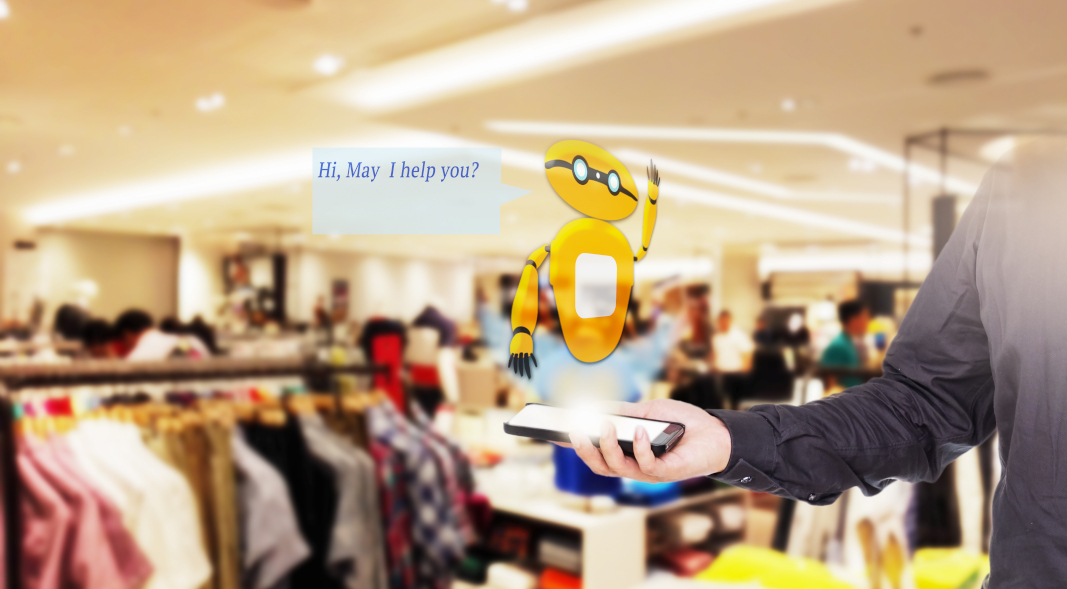The evolution of chatbots from a customer support tool continues as retailers, events, hotels, airlines and other sales-focused businesses seek to claw back some of the trade lost to scalpers, scrapers and comparison sites.
The wide range of ways to buy almost any product online creates confusion, brand dilution and further moves the consumer away from any relationship with the maker or original business. That change continues to impact the most disrupted areas, notably hotels where major efforts to regain direct bookings (details required to access report) are a major industry trend, as it highlights,
“Hoteliers are prioritising their guest-facing digital assets to deliver more, while ensuring marketing efforts remain pocket-friendly. Much of the focus remains on websites, social media and messaging, an intersection where agile technologies like chatbots are taking shape.”
While the owners would prefer that hotel rooms and airline seats were full, the drive to selling them by any means necessary has received plenty of pushback in recent years. From Hilton Hotel’s Stop Clicking Around (video) campaign to the growing pressure to limit the power of scraper sites, the battleground isn’t too dissimilar to taxi firms vs. Uber and Lyft, and record labels scrapping with Spotify and Tidal.
Chatbots Helping the Sales Pitch
The stakes (or the percentages) are higher for hotels and airlines, who are turning to their established friend the chatbot. Bots have been doing sterling service for several years, helping their high volume customer service efforts, smoothing the support process by speeding up access to information, providing instant response and handling variable volume of traffic.
Now, the hotels and airlines need the bots to help sell the next booking, to build a relationship with customers who are used to all-digital interactions and to broaden their platform, even as the world gets used to the idea of booking everything through an Expedia or similar service.
As chatbots progress from those early scripted efforts to smarter natural language processing (NLP), multilanguage support, AI-enhanced smartness and other features, they can help the brand and market regain loyalty and win customers.
New generations of bots can provide deeper customer interactions, becoming the customers regular point of contact for sales, inquiries and taking bookings and making changes. Bots can even use machine-to-machine chat to talk to their peers, providing an expanded range of services, linking airlines to taxis to hotels, creating ad hoc joined-up networks to rival the efforts of the all-in-one travel services.
Pushing the Bot Message
Hotel chatbots are already doing huge business, The Cosmopolitan of Las Vegas is as famous in tech circles for its chatbot Rose than the big bands that play the hotel’s clubs. Rose has a sense of humour, can handle most customer requests and provide guided tours, way beyond what most chatbots offer.

Yet some brands aren’t waiting for bot smartness to catch up, Four Seasons’ live chat to agents had passed 3.5 million messages in a year by the end of 2018. Accessible via WhatsApp, Facebook Messenger, WeChat, KakaoTalk, LINE, Apple Business Chat, SMS among others, it represents the “be everywhere the customer is” approach that any business needs to take when dealing with large numbers of customers.
And, when bot technology is flexible enough to deal with restaurant queries, more nuanced requests and the like, Four Seasons IT and marketing team can let those bots can take over a steady stream of messages and most people will likely never notice the difference.
Around the world, bots are helping growing numbers of travelers, and as the technology appears in more areas and markets, adoption and acceptance is accelerating. As bots smarten up, they can deliver more personalized messages, be available as part of apps or smart concierge services, and provide a longer-lasting relationship with the customer over many stays, flights or other interactions.
Bots can also help the transport and entertainment markets better handle their own queries. Amanda is a new bot helping those in the holiday booking field answer a growing range of simple and more complex questions. Hotel chains can use bots to talk to each other without waiting for a concierge, the local agent or other worker to handle requests.
As bots grow up, they can make marketing offers, better understand the needs of the customer and be the glue that builds a relationship with them, based on AI and big data to deliver what customers expect.




